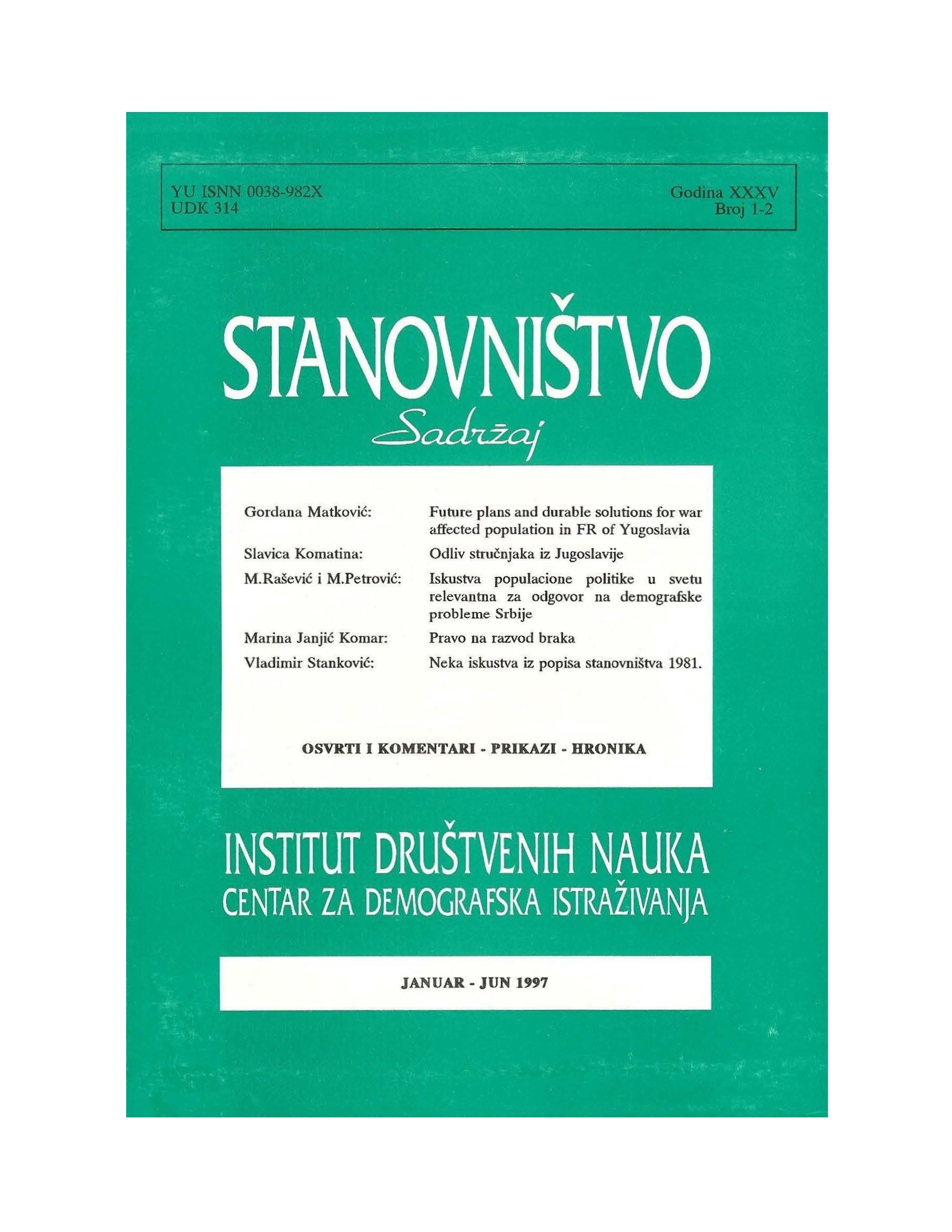The Experience Gained from the 1981 Census
Main Article Content
Abstract
The analysis of certain key methodological issues concerning population censuses, both preceding and following pre-tests, has traditionally been arousing heightened attention of experts. Unfortunately, most of such pre-tests, including the one preceding the 1981 census taking, cannot be said to have attained their primary task of defining the general census contents and empirically checking the reliability of the methodological instruments to be applied in its taking. The differences in the contents of the pre-tests and general censuses as well as the ad hoc changes in the methodology are now commonly met in practice.
The paper also deals with some important methodological and contents related issues such as: 1) the classification of the population by "residence" (de jure or de facto), 2) the standardization of the contents and the reduction of the number of items in census forms, 3) the elaboration of a more adequate statistical classification (typology) of settlements, 4) the possibility of obtaining "derived" characteristics, 5) the problems related to the uniform system of automatic data processing, 6) the criteria of logical control and their influence on data reliability, etc.
Article Details

This work is licensed under a Creative Commons Attribution-NonCommercial 4.0 International License.
Published by the Institute of Social Sciences - Center for Demographic Research





